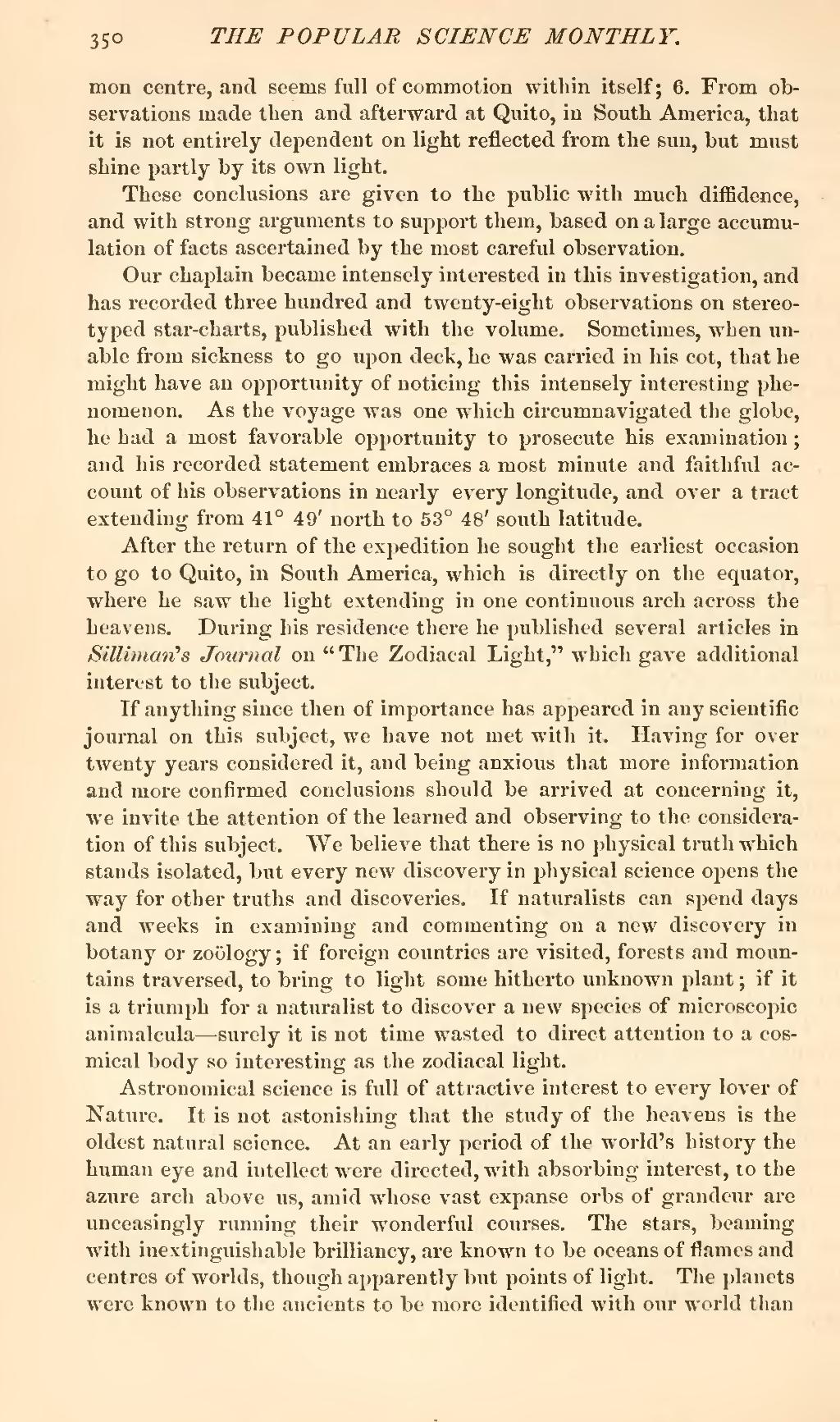mon centre, and seems full of commotion within itself; 6. From observations made then and afterward at Quito, in South America, that it is not entirely dependent on light reflected from the sun, but must shine partly by its own light.
These conclusions are given to the public with much diffidence, and with strong arguments to support them, based on a large accumulation of facts ascertained by the most careful observation.
Our chaplain became intensely interested in this investigation, and has recorded three hundred and twenty-eight observations on stereotyped star-charts, published with the volume. Sometimes, when unable from sickness to go upon deck, he was carried in his cot, that he might have an opportunity of noticing this intensely interesting phenomenon. As the voyage was one which circumnavigated the globe, he had a most favorable opportunity to prosecute his examination; and his recorded statement embraces a most minute and faithful account of his observations in nearly every longitude, and over a tract extending from 41° 49' north to 53° 48' south latitude.
After the return of the expedition he sought the earliest occasion to go to Quito, in South America, which is directly on the equator, where he saw the light extending in one continuous arch across the heavens. During his residence there he published several articles in Silliman's Journal on "The Zodiacal Light," which gave additional interest to the subject.
If anything since then of importance has appeared in any scientific journal on this subject, we have not met with it. Having for over twenty years considered it, and being anxious that more information and more confirmed conclusions should be arrived at concerning it, we invite the attention of the learned and observing to the consideration of this subject. We believe that there is no physical truth which stands isolated, but every new discovery in physical science opens the way for other truths and discoveries. If naturalists can spend days and weeks in examining and commenting on a new discovery in botany or zoölogy; if foreign countries are visited, forests and mountains traversed, to bring to light some hitherto unknown plant; if it is a triumph for a naturalist to discover a new species of microscopic animalcula—surely it is not time wasted to direct attention to a cosmical body so interesting as the zodiacal light.
Astronomical science is full of attractive interest to every lover of Nature. It is not astonishing that the study of the heavens is the oldest natural science. At an early period of the world's history the human eye and intellect were directed, with absorbing interest, to the azure arch above us, amid whose vast expanse orbs of grandeur are unceasingly running their wonderful courses. The stars, beaming with inextinguishable brilliancy, are known to be oceans of flames and centres of worlds, though apparently but points of light. The planets were known to the ancients to be more identified with our world than

